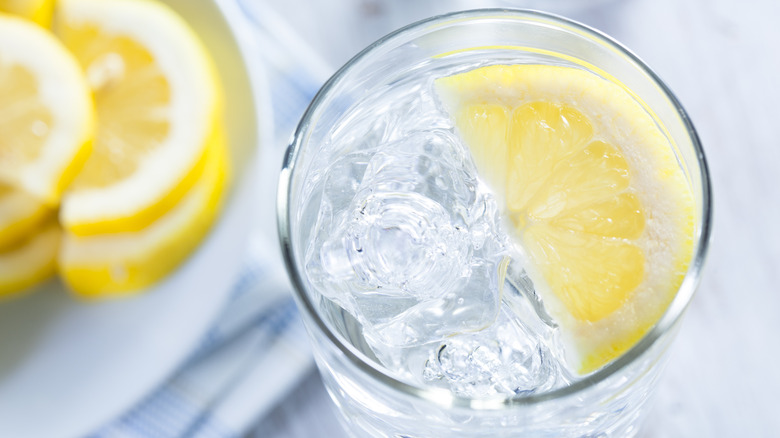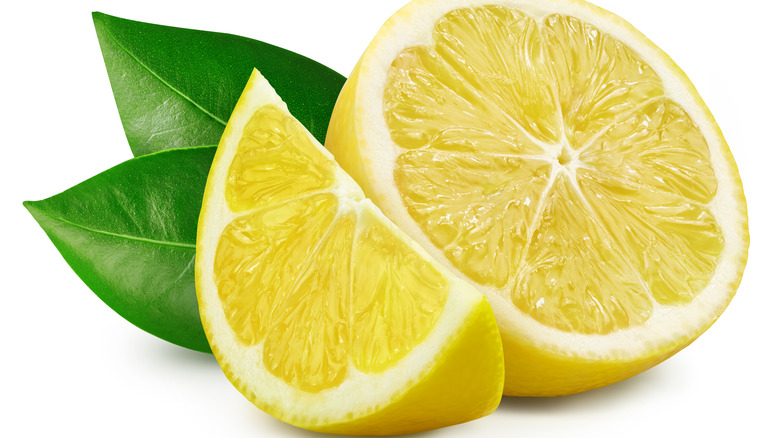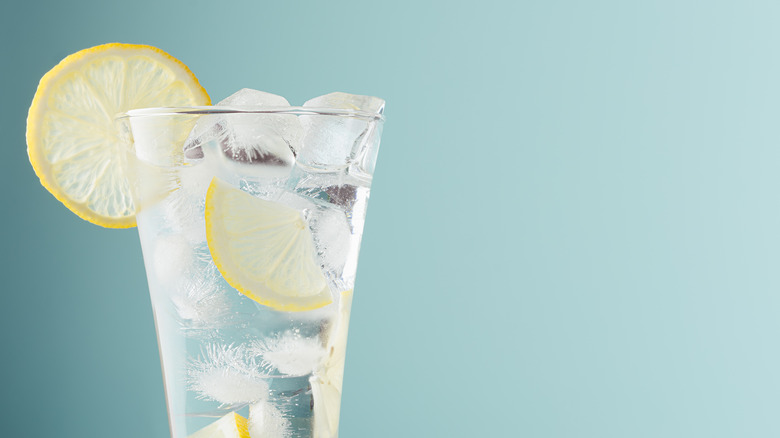Why Lemons Are One Of The Least Sanitary Items In A Restaurant
There are many reasons to request water for your drink at a restaurant, For one, an alarmingly high number of Americans don't get enough water. PR Newswire reports that a study by Quench, a filtered water provider, showed that 77% of Americans believe they don't drink enough water during the workday. Of course, the amount of water a person should drink can vary depending on age, gender, weight, activity level, and the climate they live in, but a general guideline is between 11.5 and 15.5 cups each day, according to the Mayo Clinic. If you are very active or live in a hot climate, though, you may need to drink more water to stay hydrated.
Another reason to skip the soda and ask for water is that the cost of drinks at restaurants can add up quickly. If you are wanting to save money while you dine out, opting for a glass of water with lemon can give you a beverage with flavor, some health benefits, like extra vitamin C, and no added cost to your bill, as most restaurants, do not charge for water. There's just one catch — lemons tend to be the most unsanitary item in a restaurant kitchen.
Lemons get touched a lot
Lemons are often considered to be one of the least sanitary items in a restaurant due to how they are handled. Lemons get touched a lot and by a lot of different hands, oftentimes without gloves. Servers, bartenders, and kitchen staff, all handle those chopped lemons at some point. Each person who handles the lemons could potentially introduce bacteria or other contaminants. Another issue is that lemons have porous rinds that are not typically washed or cleaned before they are sliced or cut. This means that any dirt, bacteria, or other contaminants on the outside of the lemon can be transferred to the inside when it's cut.
In restaurant kitchens, lemons are often stored at room temperature, which can encourage the growth of bacteria. Additionally, they are frequently stored in open containers or on countertops, making them easy to grab, where they can be exposed to other contaminants. This isn't safe, as cut lemons can only last about a week or two tops if they are stored properly in the fridge. When left out at room temperature, they can go bad faster.
Risks of ordering water at a restaurant
If you're still not convinced, you should know that a 2007 study found that nearly 70% of restaurant lemon wedges are covered in germs, including E Coli and fecal matter. Yikes. You could always get water without lemon, but if you are worried about food poisoning from contaminated lemons, you need to also consider that ice cubes from restaurants are often unsanitary, too, because the machines that produce the ice can be home to harmful bacteria, mold, and viruses.
And while lemons have antimicrobial properties, you can still get sick from drinking contaminated lemons and ice because the amount of lemon juice in the wedges in your drink isn't sufficient enough to kill the germs that may be hitching a ride into your water. Dining at restaurants always comes with some risk of airborne illness exposure, though, so if you want lemons in your water and you don't think the risk is too big, go for it! If you want to take as many precautions as you can, however, ditch the lemon and drink plain water.


